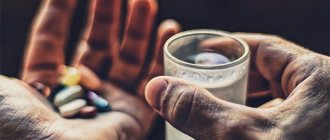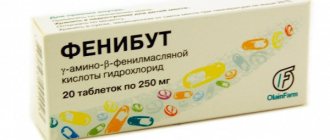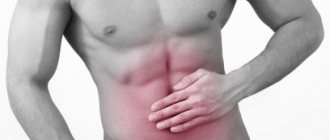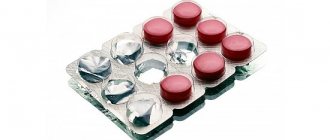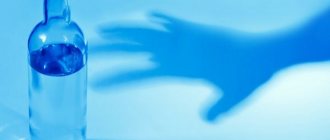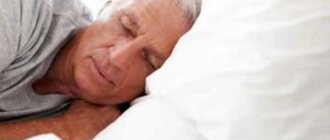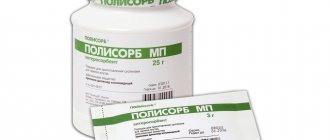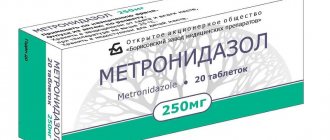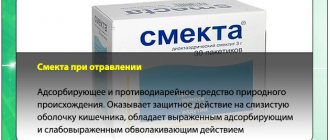When the next morning is hard after yesterday's fun or, even worse, a long binge, a person feverishly looks for a way to ease his well-being. If the usual one hundred grams is not acceptable, it remains to be treated with medications. However, the sufferer often does not think about the pharmacological properties of the medications he is taking, and does not look for an answer to the question of whether this drug is compatible with the remains of alcohol that are still wandering in the body. After drinking liters, they drink well-known (Aspirin, Glycine) and unfamiliar medications, which include Phenibut. Not every alcoholic knows about it and, nevertheless, are Phenibut and any alcohol compatible or not?
Combination of nootropics and alcoholic drinks
The goal that a person using phenibut sets for himself is brain development. The presented drug belongs to the group of nootropic drugs. When asked whether it is possible to take Phenibut with alcohol, experts say that the chemical elements in these substances are poorly compatible. Proof is a separate clause in the instructions prohibiting the use of a medicinal product with alcoholic beverages. The consequences of combining phenibut and alcohol are varied, one of them is an increase and increase in the duration of the effects of alcohol. This fact motivates some people suffering from alcoholism to use the drug other than as prescribed by a doctor.
Experts do not recommend taking phenibut if you have a hangover. This is due to the fact that alcohol fractions remain in the blood for a long time. Healthcare workers also consider phenibut and alcohol to be incompatible substances. Side effects when combined are difficult to classify as critical. Reviews about the compatibility of Phenibut and alcohol are varied; medical professionals do not recommend consuming alcoholic beverages; some netizens strongly recommend it, explaining that the drug presented (like any nootropic) improves brain function and has a positive effect on the central nervous system.
The editors do not recommend risking your health and testing the compatibility of these substances on yourself. Alcohol has many negative consequences. And its enhanced effect can have a detrimental effect on health both now and in the future.
Description of the drug Phenibut?
By its chemical nature, phenibut is a derivative of gamma-aminobutyric acid, which serves as the most important inhibitory neurotransmitter of the central nervous system. The drug of the same name is a strong and relatively safe nootropic drug that improves higher brain functions.
Phenibut has a complex effect - tranquilizing (calms), psychostimulating, antioxidant (stops harmful oxidative processes).
It is prescribed both in short courses (for example, to get rid of panic before a complex operation) and in long courses (for the treatment of stuttering, phobias, etc.).
The list of indications for Phenibut is quite wide; the drug is successfully used to treat patients of all age groups:
- for the treatment of nervous tics, stuttering and enuresis in children;
- to get rid of obsessive-compulsive neurosis, psychopathy, various phobias, etc.;
- as a sedative when preparing a patient for a complex operation or an unpleasant diagnostic procedure (premedication);
- for dizziness caused by disorders of the vestibular apparatus;
- to prevent motion sickness during motion sickness (kinetosis);
- to get rid of insomnia and nightmares - for older people;
- as part of complex therapy – for the treatment of alcoholism and its consequences.
In narcology, Phenibut is a fairly popular drug due to its effectiveness and relatively small number of side effects. It is used to relieve withdrawal symptoms, as well as to get rid of alcoholic delirium and pre-delirium. But the last point is only in the clinic, in combination with classic detoxifiers. In the video about the drug Phenibut:
Reviews from people and expert opinions
When taking alcoholic beverages, the drug increases the side effects of poisoning. Although reviews from people who have taken phenibut are positive. This is due to the fact that it relieves a number of negative symptoms, such as inhibition of reactions, increased drowsiness. But no medical professional recommends taking phenibut for a hangover. Although the medicine is mistakenly considered a sleeping pill, and during alcohol intoxication some people drink it to normalize sleep, the drug is not a sedative and, like other medicines, will worsen your and painful condition.
Symptoms of poisoning
The symptoms of such poisoning are extremely acute and pronounced. The extent of the symptoms listed below depends on the dose, quality and strength of the alcoholic drink. The typical clinical picture is as follows:
- nausea and vomiting,
- slow heartbeat,
- drop in blood pressure (sharp) to critical levels,
- disturbances of consciousness, development of convulsive seizures.
Binge drinking and withdrawal symptoms
After prolonged alcohol poisoning, the body does not need to fight another harmful substance. Experts note that taking the drug after any amount of time will negatively affect your health. The dose of phenibut for withdrawal symptoms is determined by the attending physician and can be several times higher than the normal dosage for prophylactic use. But you should not try to determine it yourself. This will cause irreparable harm to health. The testimonies of people who took phenibut for withdrawal symptoms are positive. The drug is used to correct asthenic and anxiety-neurotic conditions, then use should have a positive effect on the patient’s condition (normalize sleep, remove anxiety and improve the general condition of the body).
But you definitely need to consult your doctor. When it comes to using phenibut for alcohol withdrawal, it is difficult to predict the effect that the suffering person will experience. The main purpose of the drug is to reduce nausea and insomnia after any intoxication (alcohol and drugs), but taking the substance is contraindicated if there are fractions in the blood. Phenibut after alcohol will increase the effect of alcohol on the brain and cause a severe hangover. In the first days after using the substance, the drug has a sedative effect, which does not combine well with an increased dosage of alcohol. In case of alcoholism, phenibut has a negative effect; at this moment, the concentration of alcoholic substances in a person’s blood is maximum, which increases the side effects of the drug. The interaction of phenibut with alcohol enhances the effect of the latter. If we read the instructions, we will learn that the action of the drug reduces the harmful effects of ethanol on the nervous system of the body.
Experts note that the time it takes for each person to remove alcohol from the blood is different, and the period for therapy will vary. It takes thirty-six hours. If you have a question about whether you can take phenibut with alcohol, the answer should be negative.
Phenibut will be harmful during heavy drinking, the drug is incompatible with the effects of ethyl alcohol, and the higher the concentration of this component in the body, the stronger the negative reaction to it. If you decide to stimulate your nervous activity after a binge, then you can take phenibut to completely cleanse the body.
How long after drinking alcohol can you take phenibut?
The exact time frame, in general and in particular cases, is almost impossible to establish (in fact, the only mechanism is empirical), since they depend on the amount of alcohol drunk, the characteristics of the body’s metabolism, the current state of individual organs and systems, and other factors.
It is recommended to start taking the drug no earlier than 2 days after consuming ethanol in large quantities - the final breakdown products of the substance will still remain in the blood (the concentration is only in trace amounts), but will not significantly worsen the therapeutic effect of phenibut.
In some cases (if there is an urgent need against the background of very strong intoxication of a withdrawal nature), the minimum time to start taking the drug can be reduced to 1 day, but with mandatory monitoring of the patient by the attending physician, preferably in a specialized hospital or outpatient clinic.
Consumption of alcoholic beverages and medications
The product does not accumulate in the blood during use and begins to be eliminated after three hours. After 6 hours, the drug leaves the brain tissue. The main amount is excreted from the body through the work of the kidneys, and a small part is excreted with bile.
Reviews about taking phenibut after a binge are different; this is due to the fact that people start taking pills with alcohol that has not left the body. If it happens that not enough time has passed and alcohol is still in the blood, then the review will be negative. If you take Phenibut when coming out of a binge, then after complete cleansing of the body. Then, in addition to the general positive effects, you will notice normalization of sleep, restoration of brain function and a general positive effect on the nervous system.
Common people say that if the percentage of alcohol in the body is small, then the negative effect of the pills will disappear: phenibut and beer cannot harm health, it contains a small amount of degrees, and it has a weak effect on the body.
This reasoning is incorrect; a small part of the alcohol fractions will end up in the body, which will have an equally negative impact on health. It follows from this that the question of whether Phenibut is compatible with alcohol will have a negative answer. You don't need to consult a doctor to find out. If you carefully read the instructions for the drug, it is easy to find a mention of the negative combination of the presented drug and ethyl alcohol, which is unsafe for the body (which is contained in any, even weak alcohol).
First aid
Since the consequences of joint use of Noofen and strong drinks can be extremely serious for health, it is necessary to have the skills to provide first aid to a victim taking Phenibut for alcoholism. In case of acute poisoning and the presence of the symptoms indicated above, you must immediately call an ambulance, since the patient needs a qualified medical examination. While waiting for an ambulance, several procedures must be performed:
- Give the victim several glasses of drinking water, preferably at room temperature, and induce vomiting. It is extremely important that the person is conscious and in a sitting position. In no case should you provoke vomiting in a patient who sluggishly answers questions or is in a drowsy state. Then it is better to wait for the doctors to arrive and perform gastric lavage on their own.
- If you have absorbents at hand, you should definitely give the victim smecta, activated carbon, sorbex, etc. This will help relieve intoxication. All other assistance should be provided by ambulance personnel.
The simultaneous use of Phenibut and alcoholic beverages is strictly prohibited. This will not only nullify the benefits of the drug, but can also cause serious harm to health.
Reducing the effects of drugs and alcohol
How soon can you drink phenibut and alcohol? The instructions say that it is suggested to begin therapy after complete elimination of ethanol. Phenibut with alcohol is allowed one day after the last dose of the medicine or 36 hours after alcohol intoxication. Reviews from adults who have taken phenibut for a hangover are negative. And no one will want to experiment (except for marginalized individuals and binge alcoholics).
How long it takes to lose phenibut and alcohol is determined by personal feelings, after restless sleep or increased nervousness returns to you, the effect of the drug begins to weaken, or stops affecting you. The drug ends its effect almost after the end of administration.
We have given a complete and detailed answer to the question of whether you can drink alcohol while taking Phenibut. If you still don’t know what to do, then it is better to stop drinking alcohol during the course of treatment with the presented medication. And also do not drink alcoholic beverages for another 24 hours after taking the last tablet.
Side effects
The instructions for use of the above-mentioned drug do not contain instructions regarding the combined use of tablets with alcohol. It is worth knowing that a slight change in the ratio of substances can provoke unpleasant sensations. Possible consequences noted after taking Phenibut tablets for hangover syndrome:
- lethargy and drowsiness;
- development of addiction to the action of a medication;
- change in perception, loss of tactile perception (sensitivity);
- some decrease in sensitivity to environmental stimuli;
- changes in the response of brain impulses;
- loss of coordination, clinical coma.
In certain cases, a different effect occurs - a person who drinks alcohol and nootropic tablets Phenibut does not experience a hangover and is in clear consciousness. In this case, it is very important to control the dose of the medicine, since the likelihood of overdose increases.
Uncontrolled use of the drug Phenibut with alcohol disrupts the functioning of the gastrointestinal tract, leading to dizziness, panic attacks and increased irritability. Only a doctor can determine the dosage and pattern of use of a medicinal substance.
Combination rules
The half-life of Phenibut after a single dose, depending on the individual characteristics of the body, varies from 12 to 36 hours. With a long course (from two weeks), traces of the drug remain in the body for a week after the end of therapy. Thus, drinking alcohol after long-term treatment with Phenibut will be safe only 10 days after the end of use.
If it turns out that alcohol was consumed first, and then it was time to take the drug, then in order to avoid negative consequences, it is better to skip the dose. This measure will help avoid unpleasant side effects from combining the drug and alcoholic beverages. The rate at which ethanol is eliminated from the body varies depending on the strength of the drink and body weight. So, if a man weighing 70 kg drank 500 ml of vodka, then ethanol will be removed from the body after 24 hours. It is after this time that it will be safe to take the medicine.
Is Phenibut compatible with alcohol: mechanism of interaction
“Phenibut” is able to effectively reduce the harmful effects of alcohol on the body due to the pharmacological action completely opposite to strong drinks. But is it possible to combine Phenibut and alcohol? The drug is completely incompatible with strong drinks, except in cases where therapy is carried out under the supervision of a doctor in a hospital setting.
Alcohol-containing drinks slow down the work of the nerve centers of the brain, have a sedative effect, and in small doses stimulate the central nervous system, causing increased excitability and mental activity.
“Phenibut” improves mental activity, has a general stimulating effect (in a quantitative, but not qualitative sense), suppresses the aggregation of blood cells, and neutralizes the action of free radicals.
The drug, as a rule, enhances the effect of alcohol, but in some cases a completely opposite effect can be observed.
So, “Phenibut” with alcohol is an extremely undesirable combination. The combination of a medication with alcohol-containing drinks is unacceptable, as it can have unpredictable consequences depending on the dosage (both the drug and the alcohol), the person’s health condition or the individual characteristics of the body.
Indications for prescribing the drug
The sedative Phenibut is used not only for depressive conditions and neuroses, but also as an active component in the complex treatment of such dysfunctions:
- stuttering, speech disorder;
- alcohol withdrawal syndrome;
- chronic stress;
- vestibular disorders;
- cerebrovascular accidents;
- encephalopathy;
- Meniere's disease;
- enuresis;
- decreased intellectual activity;
- combating fears of various natures;
- sleep disturbance.
The drug Phenibut is actively used in modern medicine to prepare patients for severe surgical interventions and to carry out preventive measures in patients suffering from kinetosis.
Phenibut is used for brain disorders and mental disorders, as well as for hangovers
The drug Phenibut is also used in complex rehabilitation therapy after traumatic brain injury, severe intoxication, osteochondrosis of the cervical spine, alcoholic delirium, strokes, and menopausal syndrome.
Taking Phenibut allows you to:
- activate brain activity;
- increase stress resistance;
- improve memory;
- increase hemodynamic readings;
- stimulate blood circulation;
- prevent thrombosis.
Adverse reactions and consequences of phenibut overdose
Most often, taking phenibut takes place without negative consequences for the body. However, side effects may include drowsiness, nausea, irritability, headache at first use, agitation, allergies, and stomach upset.
With an overdose, side effects increase, vomiting, liver steatosis (deposition of fat in its cells), an increase in the number of eosinophils in the blood, a decrease in blood pressure, and impaired kidney function.
One of the side effects of phenibut may be nausea
If adverse reactions are pronounced, it is recommended to stop taking the drug and consult a doctor about further treatment. In case of an overdose of phenibut, you need to rinse your stomach, drink activated charcoal and carry out therapy aimed at eliminating the symptoms of the painful condition.
Anticipated Consequences
Timely and competent treatment with this medication perfectly improves the condition of those addicted to alcohol, brings them out of binge drinking, and eliminates severe hangovers. The main thing in this case is not to go beyond the specialist’s recommendations and not to exceed the dosage prescribed by him. Self-administration of the drug is not allowed. If taken uncontrolled, the following consequences may occur:
- very strong drowsiness;
- panic attacks;
- irritability;
- vomiting and nausea;
- allergic reactions.
In especially serious cases, the simultaneous use of alcohol and medication results in fainting, delirium, deep sleep, or even coma. In addition, taking Phenibut after drinking alcohol can cause the following conditions:
- this combination is addictive;
- intoxication in this case is several times greater in severity than usual;
- a person may sleep too long;
- significant deterioration in mental state;
- the patient may suffer from flatulence, migraines, vomiting, diarrhea, nausea, allergic reactions and dizziness;
- Blood pressure may decrease and kidney failure may develop;
- in especially severe cases, death is possible.
Use for alcoholism
The drug relieves the unpleasant effects of withdrawal syndrome and reduces the craving for a new dose of alcohol. All this makes Phenibut an effective treatment for alcohol addiction.
When an addict gives up alcohol, the first thing that suffers is the psyche, which is affected by the breakdown products of ethanol: sleep becomes intermittent and superficial, and realistic nightmare visions appear. Phenibut helps to cope with such manifestations of alcohol withdrawal.
The medicine is only an auxiliary therapeutic agent in the course of treatment for alcoholism. It facilitates withdrawal symptoms and relieves withdrawal symptoms.
The drug normalizes blood circulation in the vessels of the brain, has an anxiolytic effect: relieves anxiety, improves sleep. All this together helps to cope with post-alcohol depression.
Taking it together with alcohol can cause a toxic coma as a result of the summation of the sedative effects of the drug and a large dose of alcoholic beverages. On its own, Phenibut can only be used as a sedative to relieve withdrawal symptoms after drinking ethanol-containing drinks before hospitalization.
The medication is used in a two- or three-week course. For the treatment of alcoholism, a daily dose of 2500 mg, divided into three doses, would be adequate. The drug is taken after meals.
Mechanism of action
The drug has a relaxing and calming effect on people. When using the medication, your mood improves, tension is relieved, and your sleep becomes stable. The brain is perfectly stimulated by the active ingredient of the drug, mental abilities and learning ability improve. Phenibut is also often prescribed after alcohol, namely to reduce a hangover.
Thanks to these features, the drug is widely used in the drug treatment sector to relieve alcohol intoxication and treat addiction. It is especially helpful when the patient is depressed due to a hangover. However, taking alcohol and Phenibut at the same time is strictly prohibited.
It is very important to know that the medicine, judging by the instructions, enhances the effect of alcohol, and therefore drinking alcohol along with taking the drug causes the person to become even more intoxicated.
